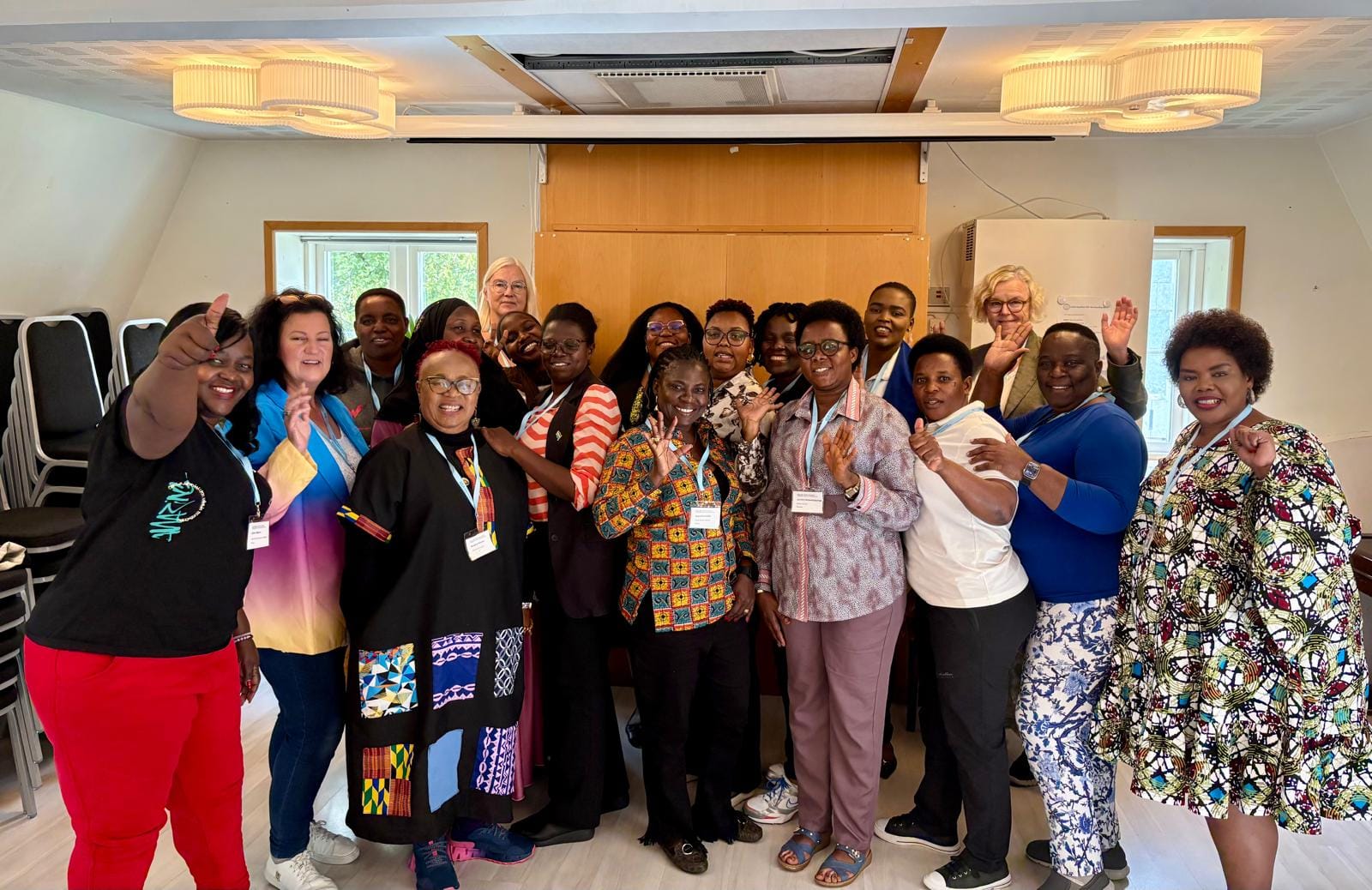What motivates and challenges women in political leadership? During The Swedish phase of the Women’s Political Leadership Programme, WPL, participants shared their experiences of what drives them, what makes leadership meaningful, and the obstacles they face in their daily work as local and regional politicians. It is about trust, integrity, and how to create long-term change that truly makes a difference in people’s lives.
The politicians in WPL11’s 2025 programme are mayors and deputy mayors, deputy governors, and MCAs from Cameroon, Ghana, Kenya, Rwanda, South Africa, and Uganda. On the second day of The Swedish phase, participants reflected on their political leadership and how they want to further develop it.
Trust, change, and courage
Several emphasized that it is the trust of citizens that drives them forward – when people see their leaders as reliable, attentive, and action-oriented. Motivation also stems from tangible results: ensuring that children go to school, securing housing for vulnerable families, or improving healthcare.
Many also highlighted the role of women in politics – both in breaking barriers themselves and in paving the way for more women to step into leadership.
As said Augustina Asentewaa, MCA in Weija Gbawe district, Ghana:
“As the only woman in my County Assembly, I choose to turn inequality into strength. It drives me to be courageous and to speak up — and to support other women to grow, so they too can claim their place in decision-making.”
Integrity and accountability
A recurring theme was the importance of integrity: never accepting bribes, “walking the talk,” and holding oneself accountable before demanding accountability from others. Leaders also pointed to the need to start early – fostering children and youth in values of honesty and transparency.
From quick wins to systemic change
A key insight was the balance between delivering visible results here and now, while at the same time driving long-term systemic reforms. Short-term achievements bring legitimacy and support in the next election, but long-term change – building institutions, routines, and structures – is what makes transformation sustainable.
Collaboration and storytelling
Participants also stressed the importance of working with technical staff, following up on decisions, and building collective leadership. By sharing stories – both about successes and future visions – leaders can create participation, transparency, and accountability in their communities.
The reflections show that meaningful leadership rests on trust, integrity, and a long-term vision. Effective leaders must both deliver for their citizens today and ensure that change is institutionalised – so that equity, participation, transparency, and accountability endure long after an individual term of office.
“As a leader, you are a role model. You can only pass on what you have acquired — if you want others to grow, you must first grow yourself.” – says Fazira Kawuma , deputy Mayor Jinja Uganda.
ICLD has implemented this leadership programme since 2023 for locally and regionally elected women across the OECD-DAC, in partnership with SALAR and with Swedish politicians participating as mentors.


